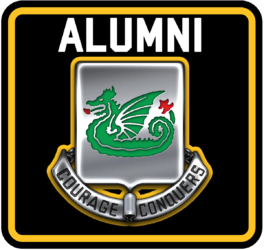Thanks to Doug Batson for writing our first AMP blog! Great insights from Doug on 5 Adaptive Skills that can help transitions. AMP volunteers, let’s keep blogs and articles like this coming. Bob Hughes…[email protected]
March 2020, Batson Blog #1: Courage Conquers, Adaptability Advances
With heady victories in the Cold War and Operation Desert Storm, in the early 1990s many U.S. Army Europe soldiers were caught off-guard by involuntary separations or voluntary incentives to separate. The USAREUR drawdown was tumultuous; 100,000 soldiers had to be promptly pared from the forward-deployed force plus confusion reigned over which units were deactivating and when. In the pre-internet age, the Army Career & Alumni Program (ACAP, now Soldier for Life/Transition Assistance Program) became a godsend for USAREUR soldiers forced to make the military to civilian transition from overseas. ACAP’s fax machines were the prized hi-tech devices then used to communicate with CONUS.
By establishing the ACAP Program in the closing Nuremberg Military Community, home to 30,000 Americans, I witnessed first-hand the agility and adaptive skills needed for a successful transition—sometimes with little or no notice! And it is the inventorying of adaptive skills that I want current 37th Armor soldiers, and their Alumni mentors, to act on from this blog.
Sometimes called work habits, I prefer the term adaptive skills because they have been learned and honed from military service. Let’s look at some examples.
- Work Cooperatively. A job description might blandly read, “work with others to meet company goals”. When it comes to inventorying examples of this adaptive skill for a resume or interview, soldiers often have more and better experiences to draw from than do their civilian counterparts. Expressing this skill, in civilian terms, such as “Led a diverse, 5-person team from different offices (not platoons, companies, or units) to package products (not rations or POL) and deliver them on time,” commands attention. Similarly, “When production peaks require overtime, willingly take on extra work.”
- Reliability is an adaptive skill desired by every employer. Be where you are supposed to be when expected; do the work expected, even if problems arise. Examples might be “Completed weekly reports on time even when direct-reports tended to be late with their figures/input.” And, “Had backup arrangements for child care in case of family illness.”
- Assertiveness is often overlooked as a personal strength. “Presented my views confidently and explained their merits without becoming defensive.” And, “Spoke up for my team during performance reviews, but also listened, not taking constructive criticism personally.”
- Concentration is the adaptive skill to remain focused on work despite distractions. “Accomplished end-of-month inventory even when adjacent office workers were noisily texting.” And, “Gathered data and costs about a new site despite severe weather interruptions.”
- Attitude is to see the best side of matters, the glass as half-full, to remain positive and committed. “Take on new tasks with enthusiasm; want to see things moving forward.” And, “Started a brainstorming session that overcame holiday shipping constraints.”
Time management, tact, judgment, thoroughness, accuracy, and flexibility are other adaptive skills to consider inventorying in preparation for a career transition. Ask current co-workers and supervisors for more adaptive skills that describe you. Chances are they will come up with some surprises to beef up your inventory. In future blogs we will examine functional and technical skills.
Douglas Batson was a Cavalry Scout in 1st Bn 37th Armor in Ansbach, Germany, 1980-82. He is a National Certified Career Counselor and Senior Professional in Human Resources. In 2004, he retired from the U.S. Army Reserve as a Sergeant First Class.

Doug,
Great article and thanks for sharing! I really like how you suggest to translate military lingo into words and phrases that would make sense to a civilian hiring manager.
I also think that even if you don’t think these things merit to be on the actual resume, you can still keep them as parts of stories that you can use to explain the accomplishments that you list along with each of your roles and responsibilities.
Looking forward to more posts!